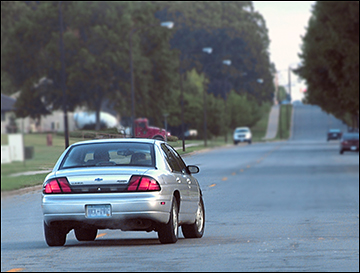Conor Friedersdorf
The Atlantic
February 20, 2014

The automobile has afforded greater freedom to so many different kinds of Americans: the mad dreamers portrayed in On the Road; the post-World War II families who suddenly had the means to pack their kids in the backseat and vacation a thousand miles from home; the Jim Crow-era blacks for whom cars were an alternative to racist public-transportation systems; the generations of American teenagers who cruised the local strip in their own versions of American Graffiti. This heritage is dear to many, and helps explain popular opposition to policies as diverse as toll roads, speed cameras, and permitting the Transportation Security Administration to expand its operations on the nation’s highways. All challenge a romantic preference for an America where anyone can climb into a car, fill up, and drive wherever they damn well please unimpeded.
Sympathetic as I am to that broad vision, its adherents sometimes resist sound reforms. The nation would be better off with better public-transportation infrastructure, more bike lanes, and lower carbon emissions. All of this can be accomplished without coercing anyone out of their cars. Meanwhile, a far more profound threat to the significant freedoms automobiles afford has garnered very little attention, and hardly any backlash, in part because it’s been implemented so quietly: The U.S. government is pushing for infrastructure that could track every car trip we take.
The Emergency Election Sale is now live! Get 30% to 60% off our most popular products today!



